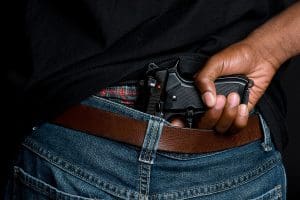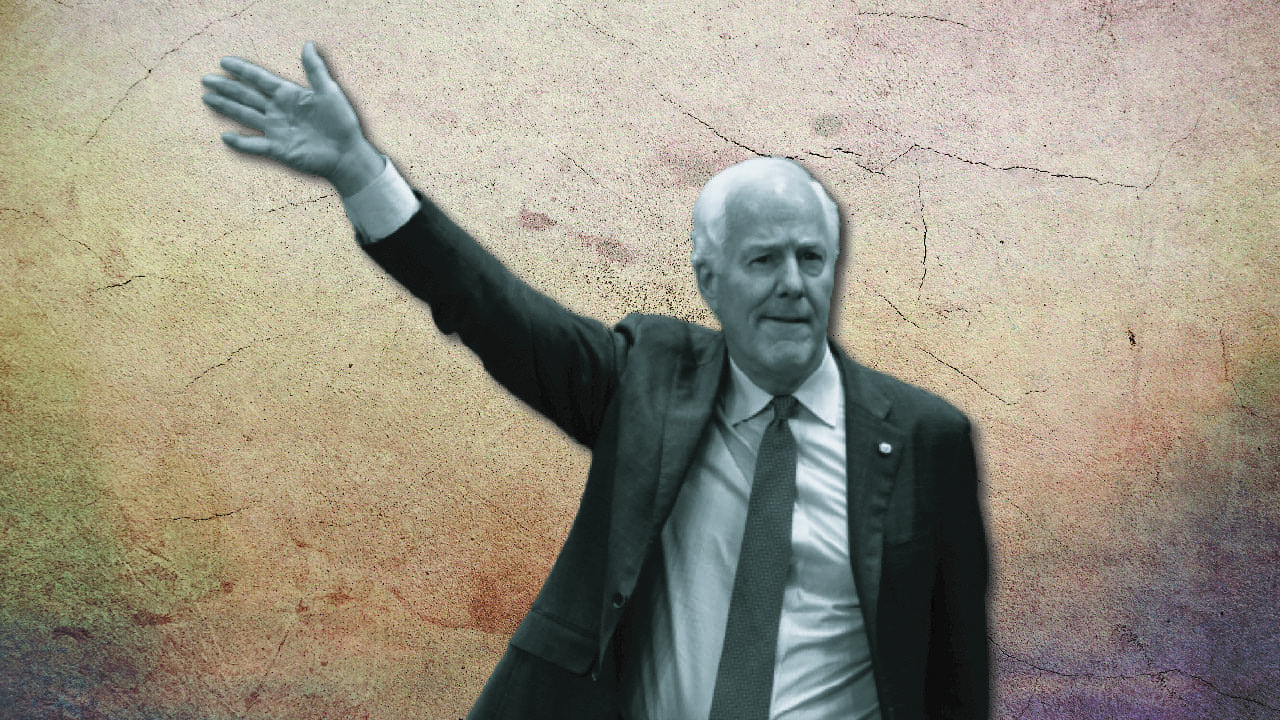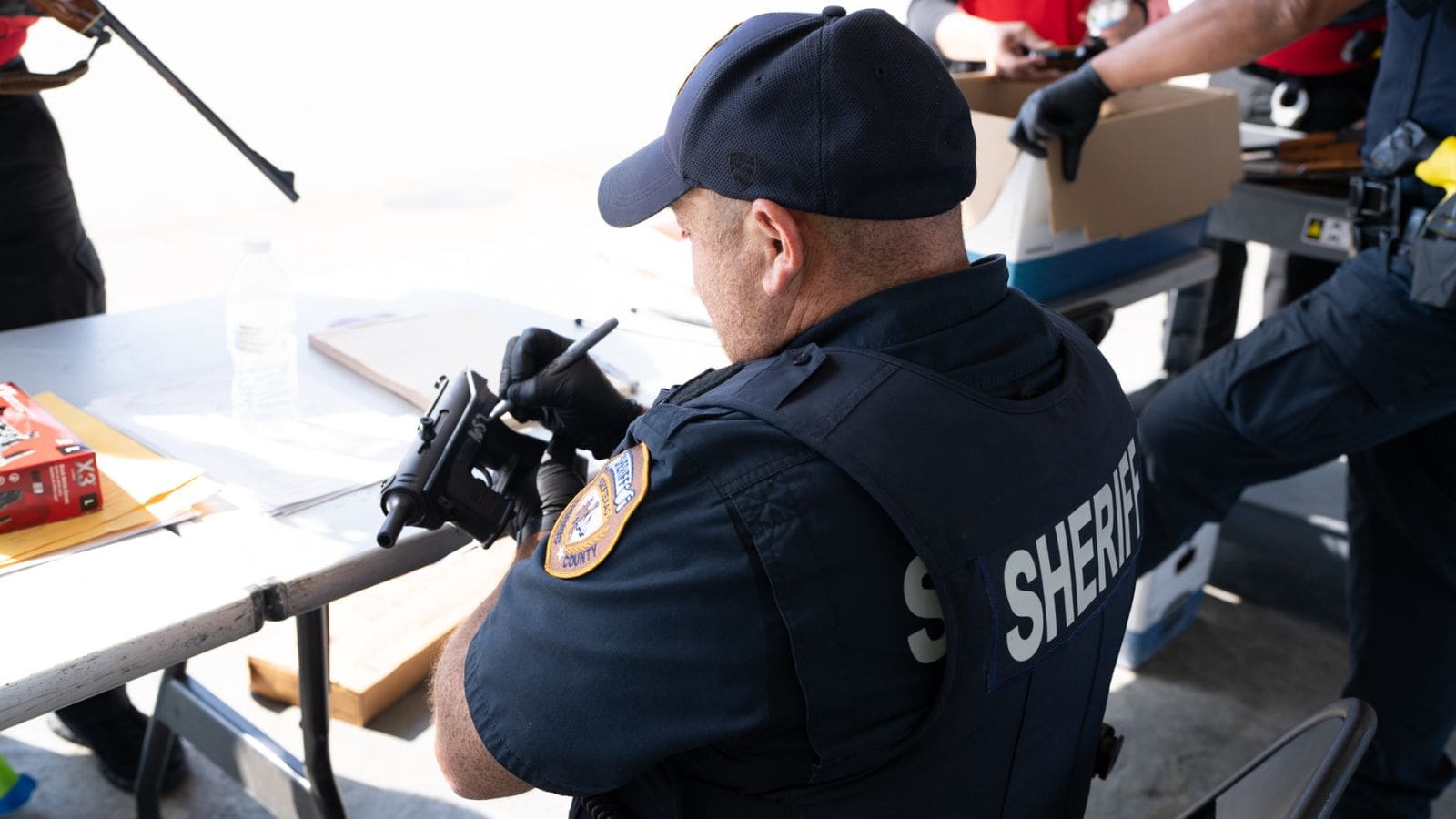Gun rights in the Lone Star State took a major step forward Monday as the Texas House passed open carry legislation. House Bill 910, by State Rep. Larry Phillips (R-Sherman) would remove the requirement that Concealed Handgun License holders conceal their weapons in public.
State Rep. Jonathan Stickland (R-Bedford) fought hard to add an amendment to the bill that would allow for “constitutional carry,” which would not require an individual to have a license in order to carry a handgun in either an open or concealed fashion—the status quo in five other states. However, without debate and without a vote, Stickland’s amendment was defeated when House Speaker Joe Straus ruled that it was not “germane” to the open carry bill. The ruling certainly seems questionable in light of Straus’s decision to allow amendments concerning knives and concealed carry on campus.
Democrats offered nearly every amendment under the sun in an effort to water down the bill. Holster specifications, restraining reciprocity agreements, banning open carry in all of Texas’ major cities, and even burdensome insurance requirements for license holders were all offered, but were successfully tabled by Phillips.
“We are not going to increase the cost of citizens’ rights under the 2nd Amendment,” said Phillips.
Phillips only accepted two amendments, both of which strengthened the rights of those who choose to carry. Amendment 18 by State Rep. Matt Schaefer (R-Tyler) lowered the penalty for carrying a handgun on premises where a 30.06 sign is posted from a class A misdemeanor to a class C, unless the license holder refuses to leave after a warning. That amendment was adopted 98-24. Also passing on the third reading was Amendment 3. A joint effort by State Reps. Harold Dutton (D-Houston) and Matt Rinaldi (R-Irving), the measure prevents police from stopping an individual solely on the basis of them carrying openly.
Though the legislation was eventually passed on Monday, it had been significantly delayed. Originally scheduled to be considered on Tuesday, it was knocked off the calendar by a point of order raised by State Rep. Trey Martinez Fischer (D-San Antonio) due to computer glitch that affected dozens of other bills.
Liberal House Speaker Joe Straus has caused even greater delays to open carry. The legislation passed by the House is nearly identical to a measure that already passed the Texas Senate over a month ago. Gov. Abbott has said that he will approve the legislation, cutting a YouTube advertisement noting that he is “warming up his signing pen.” If the Texas House had simply taken up the Senate bill, open carry would already be heading to the Governor’s desk.
However, in an unprecedented obstructionist move by Straus hundreds of Senate bills are languishing on his desk without a referral. At any point, the Senate’s open carry bill could have been referred to committee, allowing it to be voted out and substituted on the House floor through a process known as “over and eligible.” Some contend that Straus’ slow-boating of gun rights, tax cuts, transportation funding, and hundreds of other measures is a deliberate attempt to take legislative hostages that can be used later in session to extract liberal gains from the conservative Senate.
Because the House bill was passed instead of the Senate bill, open carry will now have to go through the entire process and through a floor debate and vote in the Senate again—yet another delay. Though the Senate has been working diligently this session under leadership by Lt. Gov. Dan Patrick and the issue should be handled expediently, the delay is unnecessary and will cost the Senate time that could be spent on other priorities. If the Senate bill had passed the House instead, the upper chamber could simply concur with the amendments and pass it on to Abbott’s desk.
The disparity in productivity between the House and Senate is something we’ve been spotlighting all session. Earlier this week, we drew further attention to the Straus blockade of conservative legislation. Even greater vigilance by voters will be needed as the session draws closer to the end in order to hold elected officials accountable on the promises they made during their elections.





